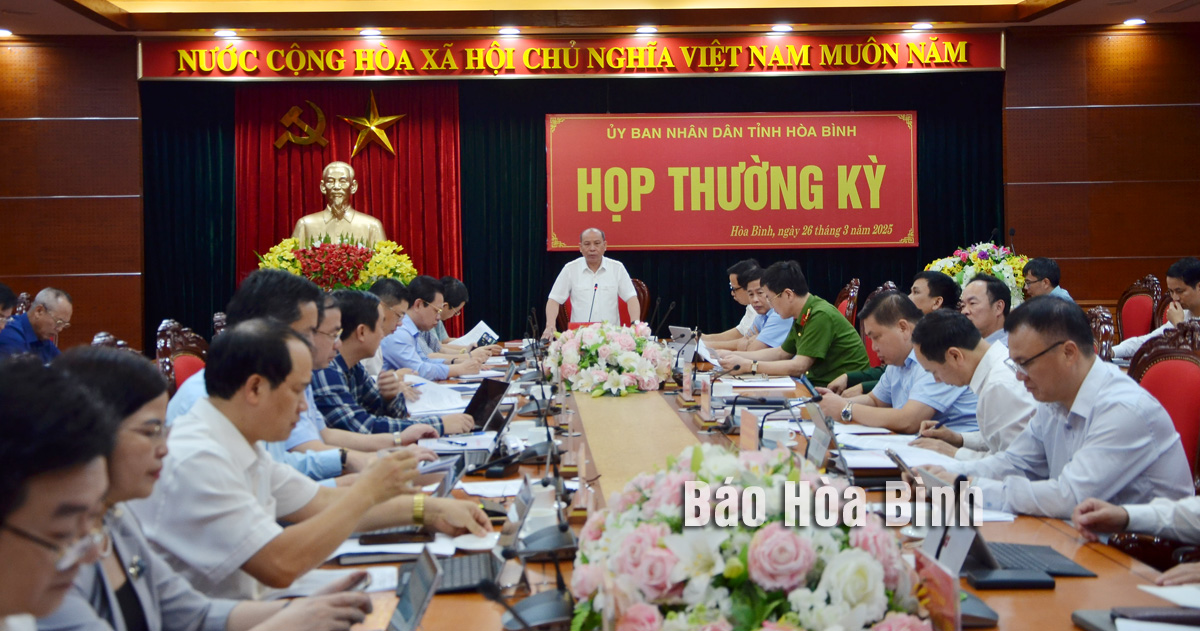



Deputy Secretary of the provincial Party Committee and Chairman of the provincial People's Committee Bui Duc Hinh delivers the concluding remarks at the meeting.
Hoa Binh province is implementing 24 key projects, including six public investment projects and 18 non-budget investment projects. To date, 10 projects have commenced, 11 others are slated to begin this year, and three are scheduled to start construction after 2025. The provincial administration has been actively working with investors to address challenges and obstacles faced by the projects.
As of now, Hoa Binh has collected approximately 2.35 trillion VND (91.9 million USD) in state budget revenue, including 2.25 trillion VND in domestic revenue, equivalent to 42% of the target set by the Prime Minister and 33% of the target set by the provincial People's Council. Revenue from import-export activities reached 100 billion VND, equating to 36% of the targets respectively assigned by the Prime Minister and the provincial People's Council, marking a 16% increase compared to the same period last year. Public investment disbursement is estimated to reach 20% of the capital plan by the end of the first quarter of 2025.
The report at the meeting identified two major causes for project delays: difficulties in land clearance and compensation procedures, along with complex administrative processes during project implementation. Officials recommended that the provincial administration expedite the issuance of district and city land-use plans to resolve land clearance and compensation issues for key projects. They also called for accelerated efforts to finalise zoning and detailed planning to facilitate investment procedures.
They reviewed several important draft decisions of the provincial People's Committee, including one approving the investment policies and investor selection for the Xuan Loc Wood and Industrial Wood Processing Plant at Phu Thanh 2 Industrial Cluster in Phu Thanh commune, Lac Thuy district; and another concerning infrastructure development at Hoa Son Industrial Cluster in Hoa Son commune, Luong Son district. Additionally, the meeting looked into a draft decision on encouraging private investment in constructing, operating, and managing environmental protection infrastructure in local industrial clusters. Some other important issues were also under consideration.
In his concluding remarks, Chairman of the People’s Committee Bui Duc Hinh commended all-level authorities, departments, and sectors for their dedication and efforts, which have contributed to positive results in the province's socio-economic development during the first quarter of 2025.
For the upcoming period, he urged relevant authorities to maintain their strong sense of responsibility and intensify efforts to perform socio-economic development tasks. He emphasised the need for a comprehensive review of all key projects, particularly land clearance and compensation while mobilising the entire political system to ensure timely progress.